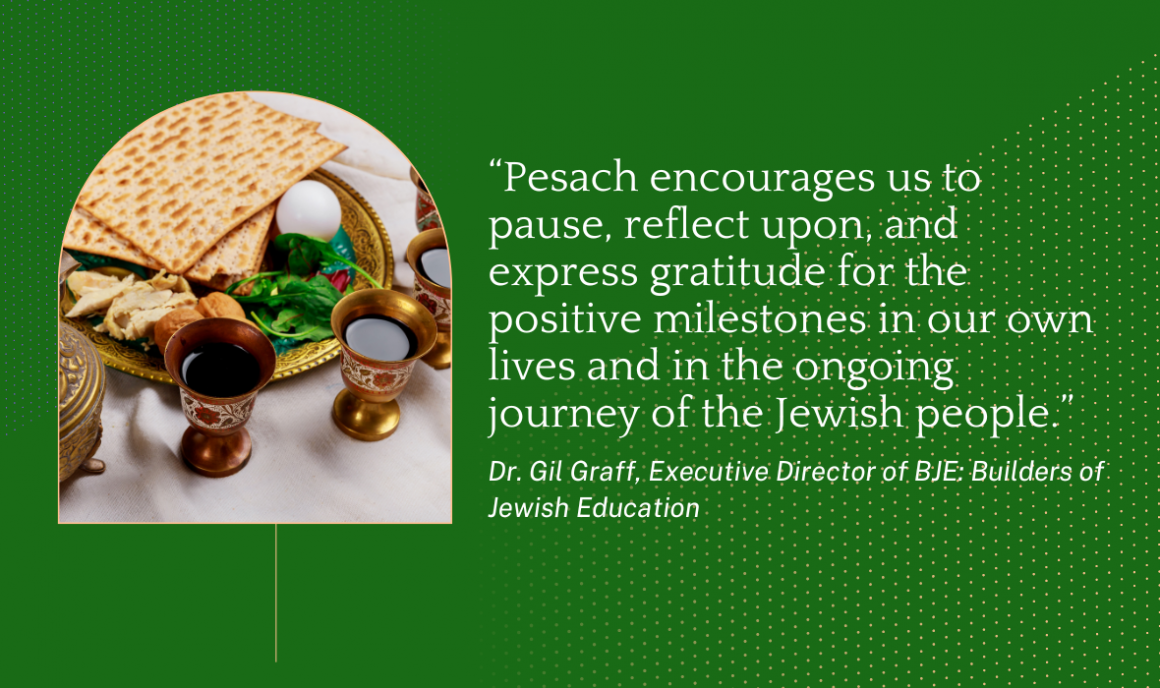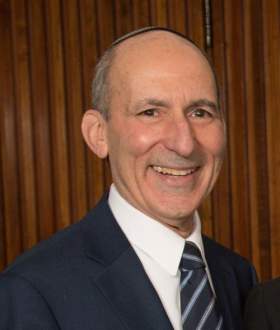
Four Thoughts as Passover Approaches
In the spirit of four questions and four cups of wine as part of the Passover seder, there are four thoughts that are top of mind (my mind, at any rate) as Pesach approaches this year. The first thought emerges from the phenomenon that Passover, unlike many Jewish holidays and other cultural and religious expressions, is celebrated by most Jews. The 2020 Pew Study of Jewish Americans showed that, while 12% of adult Jews in the United States attend religious services weekly and 39% often (20%) or sometimes (19%) mark shabbat in a way that is meaningful to them, 62% held or attended a Passover seder during the previous year.
The Passover seder is, commonly, an at-home, multi-generational experience. Engaging families in shared Jewish experiences as a learning and identity-building strategy is something that those who fashioned the seder and its associated Haggadah well understood. It is something that has, impressively, re-emerged in our time as an approach to Jewish educational engagement. Not only children but adults are invited and encouraged to grow in Jewish learning; the shared experience is mutually reinforcing, strengthening family bonds, and connecting families with Jews across place and time.
Another aspect of the holiday is its celebration of Jewish particularism. The Haggadah tells a story about a particular people and its experience of slavery. Memory of being “othered” and enslaved, however, rather than fostering insularity and distancing from others, is to nurture empathy for and fair treatment of the alien, “because you were strangers in Egypt.”
The story of the Jewish people is the narrative of a distinctive, covenantal community engaged with the world of which we are a part, dignifying all people and appreciating the universality of the human condition. In his book The Dignity of Difference, Jonathan Sacks notes that the God of the Hebrew Bible loves “each of his children for what they are.” The lesson for humanity is that “we are particular and universal, the same and different, human beings as such, but also members of this family, that community, this history, that heritage. Our particularity is our window on to universality….”
A robust Jewish identity with openness to the world is developed through Jewish education. Writing more than a century ago, a prominent Jewish educator (Alexander Dushkin) commented: “(Jewish) Education is essentially reproductive, for it means the transmission of interests to the next generation. With education at the center of (Jewish) communal life, charity and all other communal activities inevitably follow. With charity at the center of communal life, not even the continuation of Jewish charity is assured.” Pesach is a reminder of the centrality of Jewish education -- and of including all our children (as with the four children of diverse dispositions and abilities referenced in the Haggadah, each of whom is “at the table”) in experiencing it -- to creating a vital Jewish present and future.
Dayenu, “it would have been enough.” These are challenging times. Hostages remain in captivity; there is warfare and turbulence in many parts of the world; there is uncertainty and unease about what the future holds; anti-Semitism, public expressions of which were widely sublimated for a few generations, has resurfaced. Yet, we have experienced remarkable things in our lifetime. Pesach encourages us to pause, reflect upon, and express gratitude for the positive milestones in our own lives and in the ongoing journey of the Jewish people.
Shared, multi-generational, Jewish experiences; particularism that enriches our lives and those of our children and grandchildren, by providing roots and wings; Jewish learning opportunities for all, and appreciation of the blessings we enjoy are all embedded in the celebration of Passover. In words that are part of each morning’s traditional Jewish liturgy: “how good is our portion … how beautiful our heritage.”
Wishing you and your family a festive and meaningful Passover 5785.

